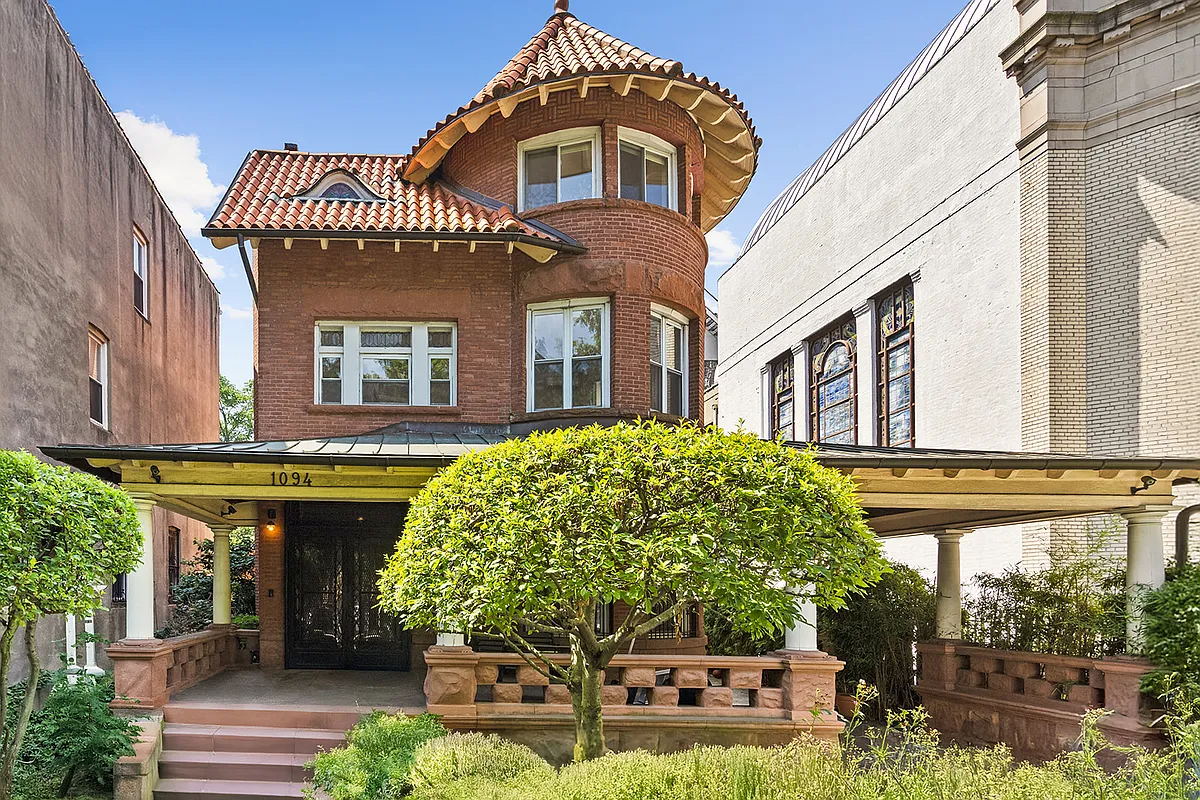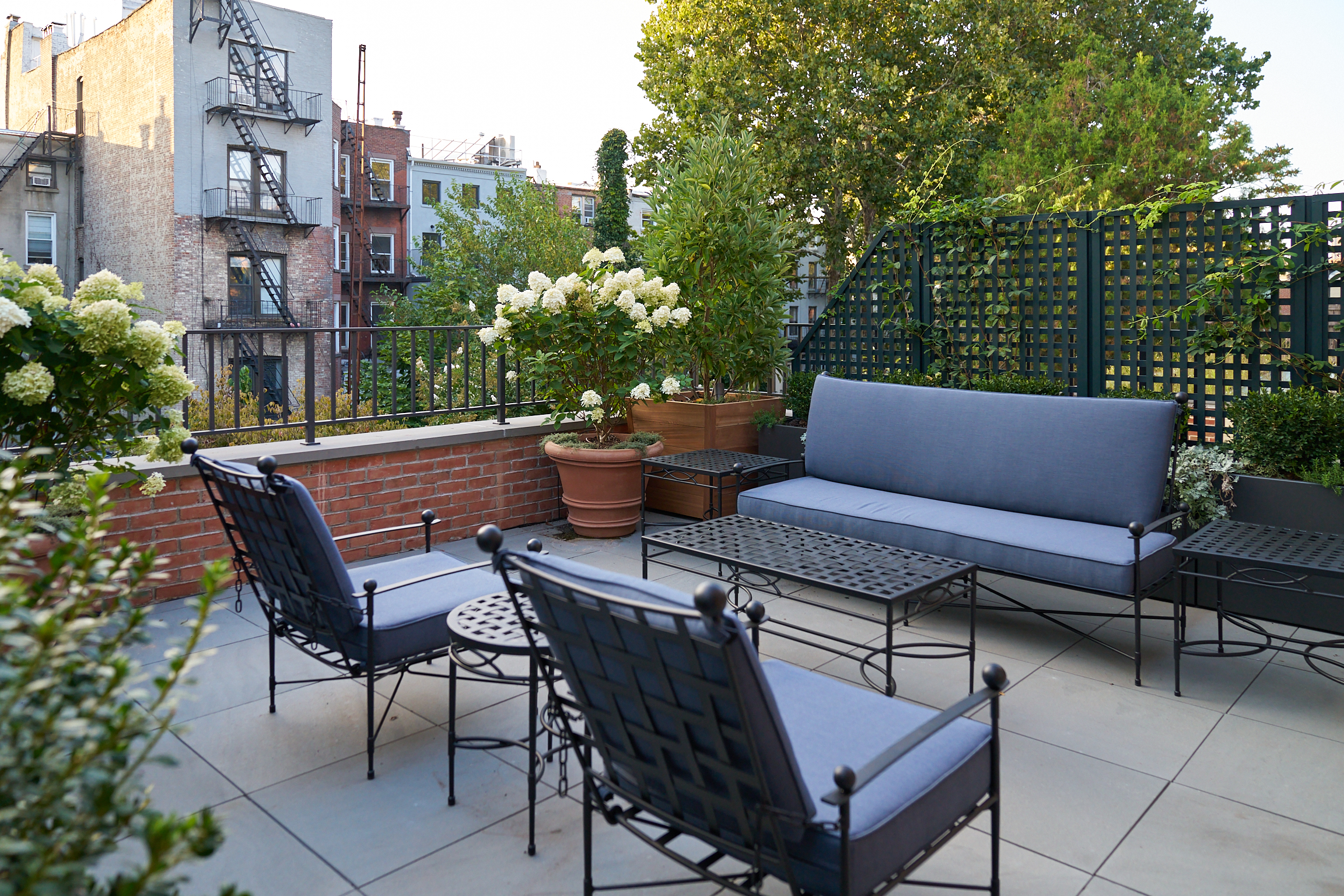House of the Day: 449 6th Street
If you want a great house in a prime location but need a little extra rental income to pull it off, this new listing at 449 6th Street just might be the ticket. The four-story brownstone is divided up into two duplexes. The listing doesn’t say what one of them would rent for, but we’re…


If you want a great house in a prime location but need a little extra rental income to pull it off, this new listing at 449 6th Street just might be the ticket. The four-story brownstone is divided up into two duplexes. The listing doesn’t say what one of them would rent for, but we’re guessing around $4,500. With rates where they are, that should help cover almost a million bucks of your mortgage. Given the asking price of $2,300,000, that should get you almost halfway there to covering your monthly mortgage nut.
449 6th Street [Corcoran] GMAP P*Shark





noki, benson just answered your question. Earning over $150k (or $125k or whatever — and I don’t know the cap for joint filers) only applies to my point 3 above, using your “loss” to reduce your taxes on your other income. None of what we are discussing limits your ability to offset your rental income with rental expenses so as to reduce or eliminate the rental income you would pay taxes.
benson, I think DIBS voted for Obama, even if he disagrees with much of what Obama is saying and doing now as prez. Do you chalk that vote up to his lack of understanding of taxation and finance? 😉
DIBS;
I challenge you on this one (seriously). Loser buys the other a drink.
no benson, the accumulated Schedule E loss is taken against ordinary income. I sold an investment property in 2002 and that’s how it was. I don’t think it has changed.
Heather and all;
It is not that bad a situation. Realize that the owner is NOT PAYING TAXES on the rental income in either case. All we are saying is that if you make over $150K, you can not deduct any further “losses” you might have from your earned income. I put “losses” in quotes because it is an accounting construct. Much of the “loss” is depreciation, which is not an actual cash outlay.
The tax benefits of owning a two family house are fairly lucrative, regardless of your income level.
I’m with dead cat in not understanding why one has to make less than $150K to properly deduct income on a $3 million dollar house. I mean, yes, I realize that everyone with a lowish salary and lots of family money in the bank lives in New York and perhaps under those circumstances that doesn’t sound insane, but… to me that still sounds insane.
Benson, Goddamnit, I stepped right into that.
Slope, thank you mucho. Is this, however, moot if one has an annual income in excess of 150k?
My understanding is the same as yours, DIBS, but I’m not a tax lawyer.
In plain english, noki, or as close as I can get to plain english having written mostly lawyer english for the last 14 years, the idea is this:
1. Suppose you take in $25k in rental income. You are worried that that gets added on to your income and you pay taxes on it.
2. But you subtract from that the expenses you can charge against that income. If you have exactly $25k in rental expenses that you can charge against the rental income, then you do not pay taxes on the rental income because it is $0 for tax purposes. If your expenses are $20k, then you pay taxes on $5k.
3. The debate you are having trouble following is what happens if you have $30k in expenses you can charge to the rental. In some circumstances (i.e., if total income is low enough) you may actually be able to claim it as a loss and use it to lower your taxes. If not, you carry it over to the following year.
Others will correct me if I got this wrong, but that is my understanding. And of course, this is not legal advice.
I actually like this house. For some reason I really like the old fashioned bathroom with the stained glass window. I think the house needs a little better configuration, but it definetely works for me.
Sorry, 50% in taxes???? What country’s that? I think the issue isn’t the deductions being capped, it’s losses being capped. You don’t need the loss, you just need to break even. The silver lining to the high price of real estate cloud is depreciating the cost of the rental unit. Not an accountant but each year my ledger kinda looks like this, different schedules for different types of deductions as someone said –
Add rental income.
Deduct cost of repairs to the rental space.
Deduct cost of owning the rental space – % of mortgage, taxes, insurance, heat, electric, etc etc.
Deduct depreciation of % being rented – say 50% of purchase price divided by 27 1/2
Same with capital improvements to anything that improves the rental space versus repairs.
On something like this, assuming 20% down, I’d guess you’re looking at renter paying bit more than half after the tax man gives you a present on April 15.